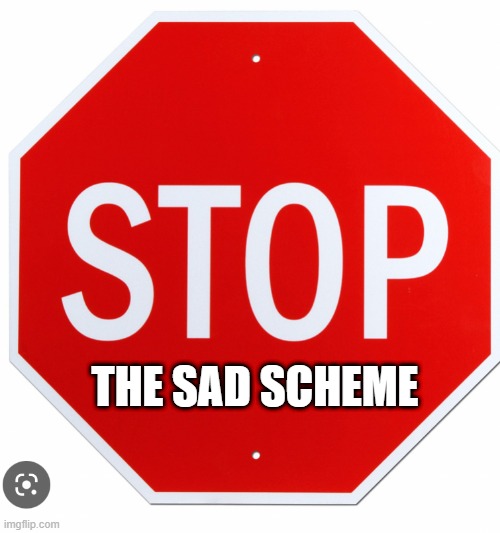Another Judge Balks at SAD Scheme Joinder–Xie v. Annex A
[Note: the defendants in this case are enumerated on an “Annex A” instead of “Schedule A.” It’s a non-substantive difference in nomenclature, but it’s one of several reasons why I prefer the more general “SAD Scheme” appellation for the practice rather than the “Schedule A” categorization.]
 This is a copyright SAD Scheme case before Judge Harjani, appointed to the Northern District of Illinois ealirer this year. As I’ve noted before, newly appointed judges are often confused by the due process corner-cuts in typical SAD Scheme cases, so they may challenge the status quo in ways the more veteran judges have been reluctant to do. In this ruling, Judge Harjani questions joinder on his own initiative.
This is a copyright SAD Scheme case before Judge Harjani, appointed to the Northern District of Illinois ealirer this year. As I’ve noted before, newly appointed judges are often confused by the due process corner-cuts in typical SAD Scheme cases, so they may challenge the status quo in ways the more veteran judges have been reluctant to do. In this ruling, Judge Harjani questions joinder on his own initiative.
Judge Harjani says the plaintiff’s papers contain “a fair amount of conclusory language about a logical relationship among all defendants but not much, if any, facts to actually support that relationship.” The plaintiff made the following allegations:
the defendants share similarities such as: (1) use of arbitrary and non−identifying aliases to intentionally conceal their identity; (2) receive and purchase the infringing products from the same manufacturer; (3) employ and benefit from market coordination, i.e., using the same advertising and images; (4) offer for sale and sell the exact same infringing products; and (5) have other shared commonalities such as price, payment accounts, grammar, spelling, titles, and descriptions
Judge Harjani fillets these allegations:
- Operating under aliases is too generic an allegation.
- The allegation that defendants transact with the same vendors requires more facts. Plus, even if the defendants all bought from the same vendor, that wouldn’t prove relationships between the defendants.
- Similiarities in advertising and product shots don’t establish relationship between the defendants either.
- “selling the same exact product does not suggest a logical relationship between every defendant.”
- The alleged “shared commonalities such as price, payment accounts, grammar, spelling, titles, and descriptions” were not argued in a way the court could understand, and it’s possible the defendants are all copying each other (or some third-party source) without cooperating.
The court ordered the plaintiff “to amend the complaint to eliminate all improperly joined defendants.” Most likely, this case falls apart. Even if it does, the plaintiff will likely keep using the SAD Scheme cases and same weak-sauce fact-deficient allegations of joinder with the hope that other judges are less vigilant.
As I mentioned recently, I can’t systematically track all of the SAD Scheme cases, so I don’t have a roster of how many times judges have rejected joinder sua sponte. But I did blog one such case recently (Dongguan Juyuan v. Schedule A), and seeing another judge do the same is encouraging. I hope both judges will continue to hold SAD Scheme plaintiffs to account, including when the plaintiffs try to salvage joinder.
Case Citation: Xie v. The Entities and Individuals Identified in Annex A, 1:24−cv−09791 (N.D. Ill. Nov. 12, 2024)
Prior Blog Posts on the SAD Scheme
- Will Judges Become More Skeptical of Joinder in SAD Scheme Cases?–Dongguan Juyuan v. Schedule A
- SAD Scheme Leads to Another Massively Disproportionate Asset Freeze–Powell v. Schedule A
- Misjoinder Dooms SAD Scheme Patent Case–Wang v. Schedule A Defendants
- Judge Hammers SEC for Lying to Get an Ex Parte TRO–SEC v. Digital Licensing
- Judge Reconsiders SAD Scheme Ruling Against Online Marketplaces–Squishmallows v. Alibaba
- N.D. Cal. Judge Pushes Back on Copyright SAD Scheme Cases–Viral DRM v. YouTube Schedule A Defendants
- A Judge Enumerates a SAD Scheme Plaintiff’s Multiple Abuses, But Still Won’t Award Sanctions–Jiangsu Huari Webbing Leather v. Schedule A Defendants
- Why Online Marketplaces Don’t Do More to Combat the SAD Scheme–Squishmallows v. Alibaba
- SAD Scheme Cases Are Always Troubling–Betty’s Best v. Schedule A Defendants
- Judge Pushes Back on SAD Scheme Sealing Requests
- Roblox Sanctioned for SAD Scheme Abuse–Roblox v. Schedule A Defendants
- Now Available: the Published Version of My SAD Scheme Article
- In a SAD Scheme Case, Court Rejects Injunction Over “Emoji” Trademark
- Schedule A (SAD Scheme) Plaintiff Sanctioned for “Fraud on the Court”–Xped v. Respect the Look
- My Comments to the USPTO About the SAD Scheme and Anticounterfeiting/Antipiracy Efforts
- My New Article on Abusive “Schedule A” IP Lawsuits Will Likely Leave You Angry
- If the Word “Emoji” is a Protectable Trademark, What Happens Next?–Emoji GmbH v. Schedule A Defendants
- My Declaration Identifying Emoji Co. GmbH as a Possible Trademark Troll



Pingback: Judge Rejects SAD Scheme Joinder-Toyota v. Schedule A Defendants - Technology & Marketing Law Blog()